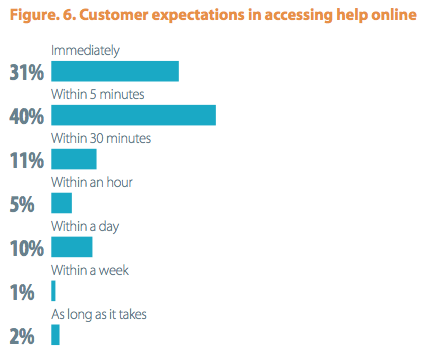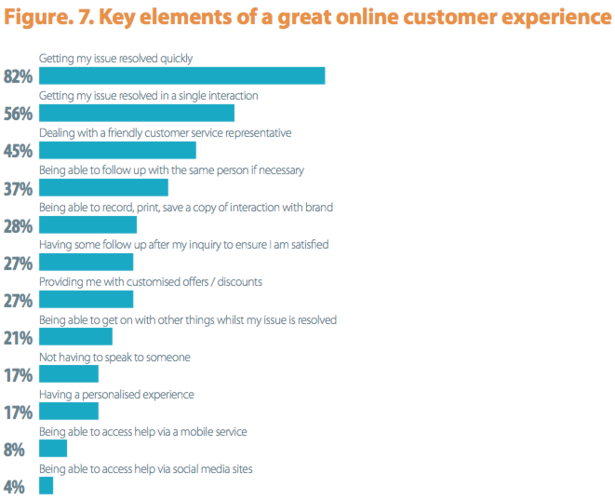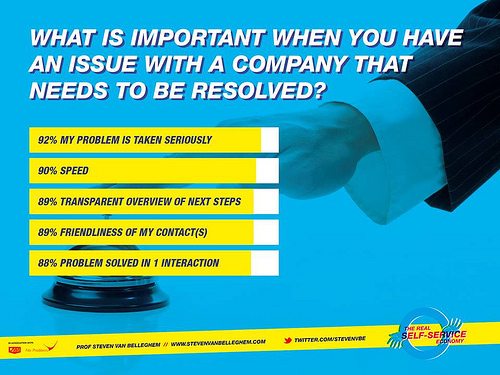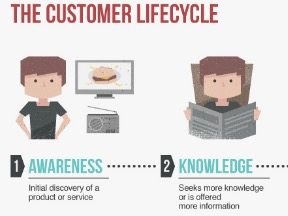In “5 Ways to Draw Shoppers In, and Keep Them,” one of my posts last year, I addressed how you have about eight seconds to get an online shopper’s attention. That means every landing page must include stellar imagery, compelling textual content, and related media — all designed to get visitors to take action.
On mobile, people are willing to spend even less time. Merchants have, typically, just one chance to engage them. One chance to give them the info they need. One chance to answer an online chat call or email, and one chance to respond to post-order concerns. That’s tricky, especially since so many small businesses operate with minimal staff.
According to Econsultancy, half of online shoppers will try just once or give up immediately when looking for help before making a purchase, and 71 percent expect some level of assistance within five minutes. Digging further, researchers found that getting issues resolved quickly and in a single interaction far outweighed the ability to contact companies for help via social media.

According to Econsultancy, 71 percent of online shoppers want answers within five minutes.
—

Eighty-two percent of respondents said getting issues resolved quickly was a key element in online customer experience. Only 4 percent said receiving customer-service help via social media was key. Source: Econsultancy.
Popular methods of getting help include telephone, email, and live chat. Online content, though, which includes an FAQ section, online support forums or ticket desks, and support videos are also common.
Some shoppers like to self-serve and others want someone to hold their hand. The self-servers are thrilled to find a knowledge base, how-to articles, community forums, and other relevant content. They prefer to read or watch a video to get answers. The other shoppers want to simply make a call, send an email, or click to chat to receive guidance and walkthroughs. Either way, the goal is provide help instantly.
What happens when someone doesn’t get the help they need in the time frame they want? Studies show that about half of them will simply jump ship.
Simple, Fast Access
There is no “one size fits all” when it comes to helping shoppers make decisions. But every online store should have the following methods of communication.
- A phone number that shoppers can call to ask questions — pre-order and post-order.
- An simple online contact form or an easy to read email address.
- Online chat that is staffed, especially during peak hours.
- An online FAQ or knowledge base. A categorized and searchable system is best.
- Supporting documentation that includes technical specifications and at least basic user guides.
- Supporting images or video that show how products work in various ways.
- At least two social media profiles that are checked at regular intervals. The channels should be decided based on your target audience, with Facebook and Twitter being a no-brainer.
A community-driven, company-moderated forum is a helpful add-on for stores that sell complex products that are configurable or multi-purpose.
Unlike other “trends” in ecommerce, the results of surveys like the one from Econsultancy, above, are one of the few things that don’t change much. A report published in the magazine Fast Company in 2013 gave similar results. It fell in line with expectations that consumers have had for decades.

A 2013 report from Fast Company stated that 90 percent of consumers want a problem to be resolved quickly.
It can be difficult and time consuming to provide so many methods of assistance to potential and existing customers. But if you build logical ways to help them, to fulfill their expectations, your business will benefit, too.




